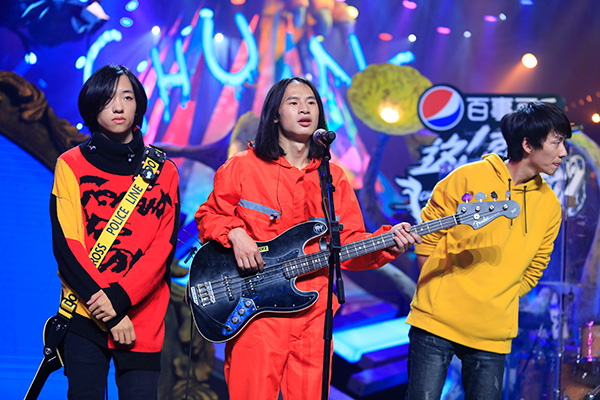Success blooms for Neon Garden
By Chen Nan | China Daily | Updated: 2019-04-03 08:04

"We've been a struggling band. We sing on the street and work part-time jobs to make our ends meet," says Tan, "but we write songs and sing. That's all we ever wanted to do. That's the same goal for the four of us."
Last year, Neon Garden stood out among a hundred original young musicians as part of a competition to join a music program-launched in 2017 by Chinese music industry guru Xu Xiaofeng, the former head of Warner Music in China-which supports original homegrown singer-songwriters.
Wu Qunda directs Chuang, which also gathers other creative team members from a previous popular China Central Television show, Song of China (2013-15). Wu was also the director of Song of China, which successfully propelled a group of original Chinese musicians into stardom, including Zhao Lei and Su Yunying.
"The music scene has changed a lot compared with around six years ago when we produced Song of China. For the new reality show, Chuang-a Chinese character which means to start doing a brand-new thing and implies 'creativity and bravery'-brings a diversity of music styles from young Chinese musicians," says Wu.
"They are open to the international music scene and create their own music using the latest technology. We've also seen many young musicians, who are interested in traditional Chinese culture and have combined it into their music.
"With Chuang, we not only want to showcase the young Chinese singer-songwriters and their songs, but also inspire the viewers and hopefully ignite that creative spark in their own lives."
Singer-songwriter Zhao Jingxu, who is better known by his stage name, Winky Shi, writes songs based on traditional Chinese poetry. Li Sao (The Sorrow of Parting) and Shan Gui (Ghost of Mountains) are based on poems by Qu Yuan, a poet from the Warring States Period (475-221 BC).
"I wanted to meet more original Chinese singer-songwriters so I joined the reality show," says the 28-year-old Zhao, who was born in Suihua, Heilongjiang province.
He first got inspired to turn traditional Chinese poetry into songs in 2015 when he was preparing for the gaokao, China's national college entrance exam.
























